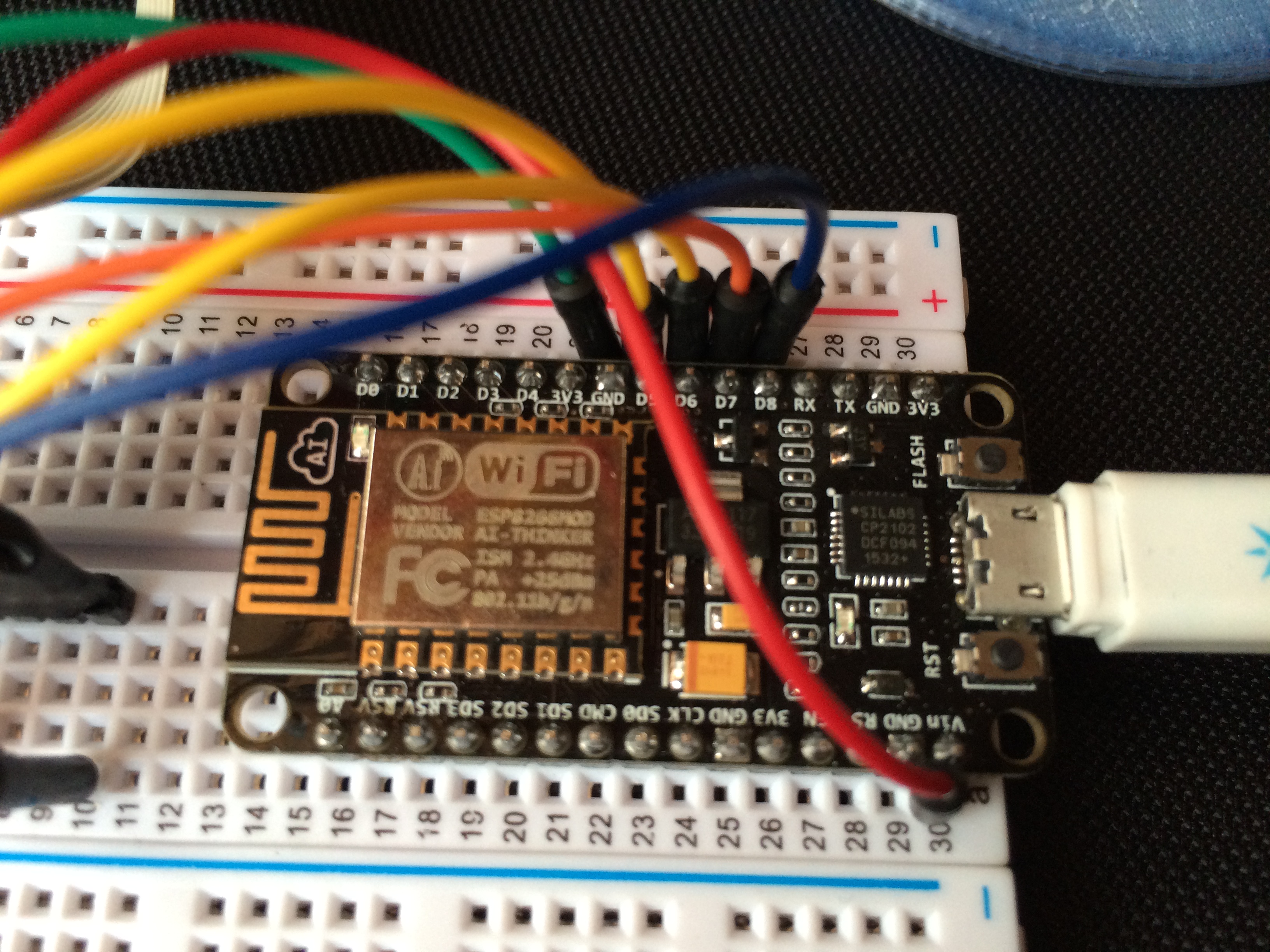Another microcontroller finally found its way into my hands.
The ESP8266 based NodeMCU is running at 80Mhz (or even 160MHz) and has WiFi built in for a ridiculous pricetag of only 10 Euro.
Initially they come with an embedded LUA interpreter preinstalled, to allow some easy scripting of event based code rather than writing and compiling C code. As LUA is not completly reentrant after Wifi events and also consumes a lot of processing power, my projects will be further written in C, so I evacuated the LUA bootloader.
Compared to Spark Cores and their always connected to the cloud behaviour, they can be configured within the standard Arduini IDE (using the ESP8266 plugin). Code can even be flashed over the air and/or served from a webserver. And if neccessary they can provide an Accesspoint of their own.
Some drawbacks that I’ve already found is that Wifi disconnects when using the only analog pin on the board, and I’ve seen lots of stack traces and crashs whenever the Wifi background timing gets disturbed to much by local code. Otherwise for short codepaths the NodeMCU can instantaneously turn every small arduino project into a more capable Internet of Things project, without much effort and/or changing of lots of code.
I’m even thinking about replacing my 5 Spark Cores which are monitoring temperature, humidity, windows, doors, light and motion at my home. Only the analog thing loosing Wifi connectivity is a showstopper for me.
For more digital projects and lots of serial communication, this is the way for me to go, so I am ordering another 2 NodeMCUs.
